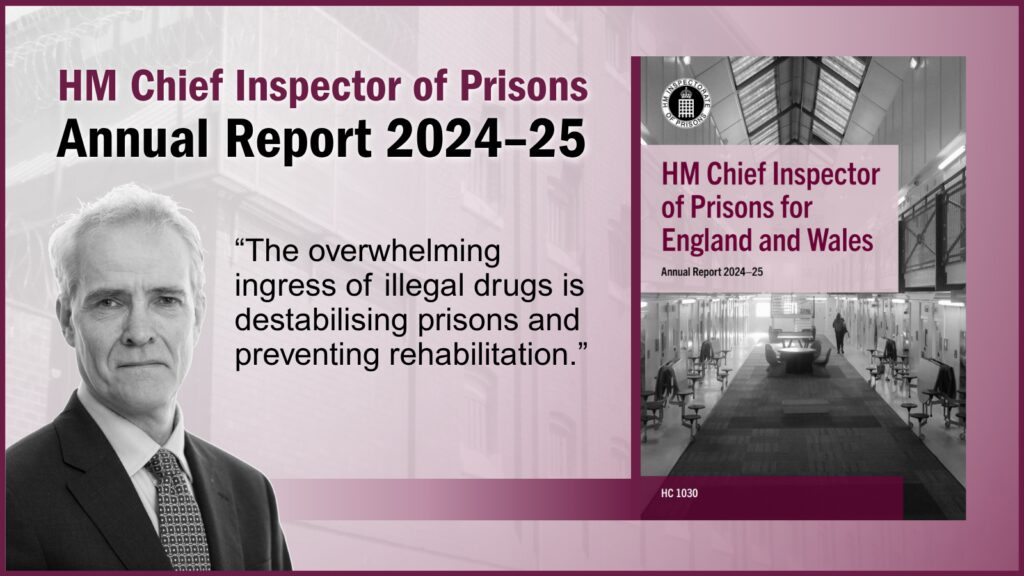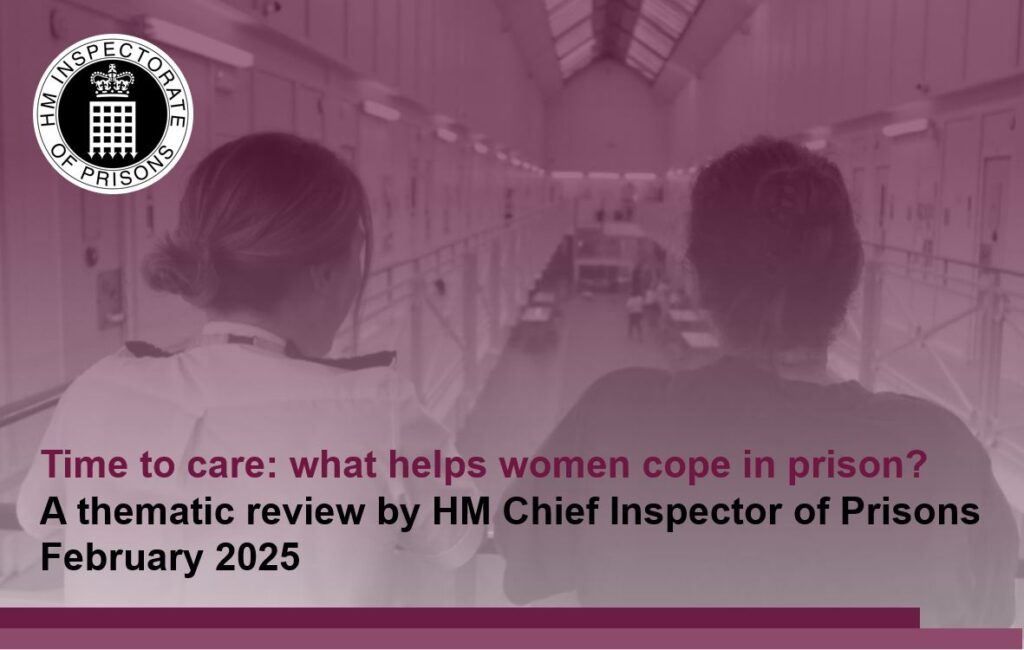Chief Inspector: overwhelming ingress of illegal drugs is destablising prisons and preventing rehabilitation
“This has been another very difficult year for all those living and working in prisons in England and Wales. I cannot overstate my concern about the rapid and widespread ingress of illicit drugs.”

Latest news updates

Time to care: what helps women cope in prison?
The rate of self-harm among women in prison has rocketed and is now 8.5 times higher than in men’s jails. This thematic looks at what support officers and leaders can offer women to reduce the likelihood that they will resort to self-harm.

Improving behaviour in prisons
These are challenging times for prisons, but some have created cultures that encourage prisoners to take part in employment and education that should help them to secure employment on their release.
Find out more about the different areas of our work
Men’s prisons
We inspect every type of men’s prison in England and Wales, from high security to open prisons, private and public sector. Find out about how we inspect and read our reports on men’s prisons.
Women’s prisons
Women make up less than 4% of the prison population. Read our Expectations for the treatment of and conditions for women, and our reports on women’s prisons.
Children’s detention
We inspect each establishment in which children are detained every year either for a full inspection or an independent review of progress. Read our reports on detention for children.
Immigration detention
Read reports on our inspections of different types of immigration detention: immigration removal centres, short-term holding facilities and escorted flights removing people from the country.
